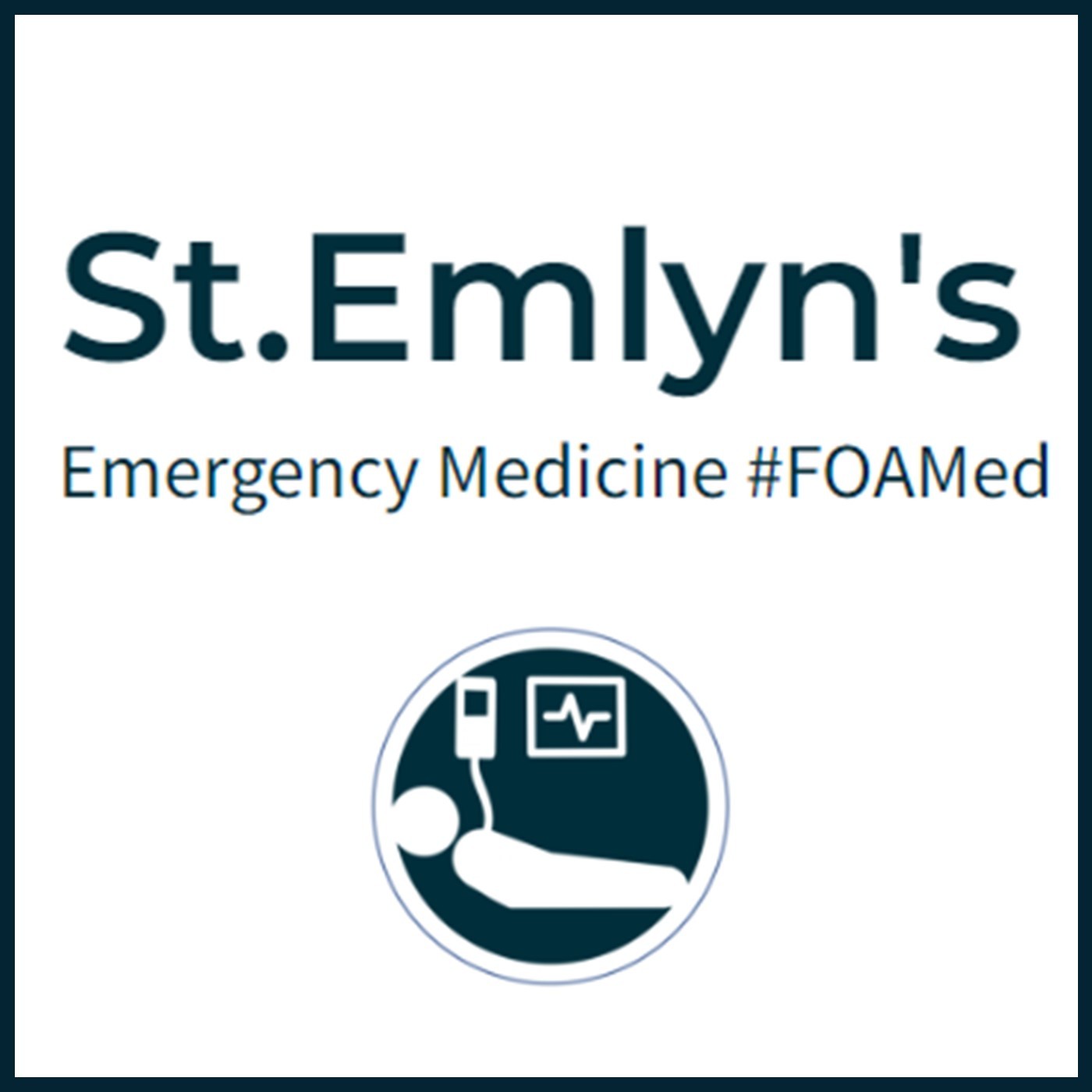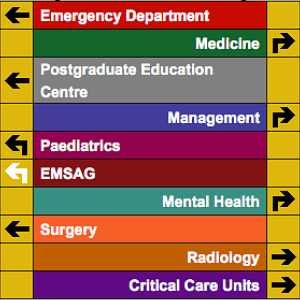
1.3M
Downloads
272
Episodes
A UK based Emergency Medicine podcast for anyone who works in emergency care. The St Emlyn ’s team are all passionate educators and clinicians who strive to bring you the best evidence based education. Our four pillars of learning are evidence-based medicine, clinical excellence, personal development and the philosophical overview of emergency care. We have a strong academic faculty and reputation for high quality education presented through multimedia platforms and articles. St Emlyn’s is a name given to a fictionalised emergency care system. This online clinical space is designed to allow clinical care to be discussed without compromising the safety or confidentiality of patients or clinicians.
Episodes

Sunday Feb 17, 2019
Ep 129 - January 2019 Round Up
Sunday Feb 17, 2019
Sunday Feb 17, 2019
St. Emlyn's January Roundup: Key Insights and Innovations
Hello and welcome to the St. Emlyn’s Podcast. I’m Simon Carley, joined by Rick Body. Today, we’re bringing you our January roundup, sharing the most intriguing and impactful content we've covered this month. From reflecting on 2018 to exploring new guidelines and innovations in emergency medicine, we have a lot to discuss. Let’s dive in!
Reflecting on 2018: Transformational Reads and Achievements
As we started January, we reflected on 2018, a year filled with significant achievements and insights. One standout discussion was our review of key books that left a lasting impact. A personal favorite of mine is "Why We Sleep" by Matthew Walker. This book has been transformational for me, influencing how I live and advise others on health, well-being, and performance. The insights on sleep’s importance in education, creativity, and overall health are profound.
Rick, did anything from our 2018 review resonate with you?
Rick Body: Absolutely, Simon. The variety of books we discussed was impressive. It was enlightening to hear about others' achievements in 2018 and their goals for 2019. This exercise really focused my mind on what I hope to achieve this year.
Goals for 2019: Innovations and Personal Aspirations
As we moved from reflections to aspirations, we set our sights on exciting projects for 2019. One major highlight is the AI incubator for emergency care. This initiative aims to support academic careers and foster partnerships between data and industry to enhance medical technologies. It’s an exhilarating time for advancements in emergency care.
Rick is incredibly busy with groundbreaking work, particularly in diagnostics in Manchester. His research and speaking engagements are making waves in the medical community. For more details on these projects, check out the blog where all the information is comprehensively covered.
New Year’s Resolutions: Insights from Liz Crowe
We explored New Year’s resolutions with Liz Crowe, who offered a fresh perspective on well-being and resolutions. Instead of focusing on all-or-nothing goals, Liz suggests starting small and seeking rewards rather than punishments. This approach makes significant lifestyle changes more manageable and sustainable. Committing to resolutions publicly or with a friend can enhance accountability and success.
Rick, do you have any New Year’s resolutions?
Rick Body: It’s challenging to pinpoint one or two, but Liz’s advice on avoiding binary thinking is crucial. Recognizing progress rather than dwelling on setbacks can make a big difference.
Tetanus Guidelines: New Insights and Practical Applications
In January, we delved into updated tetanus guidelines, highlighting significant changes. Previously, a single booster in your early 20s was deemed sufficient, but the new guidelines recommend a 10-year booster. This change stems from the recognition that immunity wanes over time. Interestingly, point-of-care testing is now available to detect active tetanus immunization, allowing for more tailored booster decisions.
These updates are crucial for emergency physicians to ensure compliance with current standards and provide optimal patient care. The blog post simplifies these guidelines, making them accessible and easy to understand.
Excellence in Emergency Medicine: Claire Richmond’s Contributions
We featured Claire Richmond, a hero in the emergency medicine community. Claire, who works with Sydney HEMS, delivered an inspiring keynote at the St. Emlyn’s live conference. Her talk focused on excellence, performance, training, and development in retrieval medicine. She emphasized the importance of honesty, feedback, and continuous improvement.
For those aspiring to achieve self-actualization in emergency medicine, Claire’s insights are invaluable. We’ve shared the video and podcast of her talk, and we highly recommend checking them out.
Prognosticating Cardiac Arrest Outcomes: Dan Horner’s Research
Another highlight of January was Professor Dan Horner’s discussion on serum neurofilament light chains, a promising tool for prognosticating cardiac arrest outcomes. This research, stemming from the TTM trial, suggests that these biomarkers can provide early predictions about patient outcomes. Early identification of patients likely to have poor neurological outcomes can significantly impact family discussions, treatment decisions, and overall management.
This research is groundbreaking and holds potential for future clinical applications, although it’s not yet ready for immediate practice.
Celebrating Evidence-Based Medicine: Critical Appraisal E-Book
We’re incredibly proud of our journal club series at St. Emlyn’s, which advocates for evidence-based medicine. This series highlights the latest research, making it accessible and understandable. To celebrate the contributions over the past year, we’ve compiled an e-book available for free download. This resource is a testament to our commitment to advancing medical knowledge and practice.
Pre-Medication for Ketamine Sedation: Exploring New Research
One of the intriguing studies we covered this month examined pre-medication with midazolam or haloperidol for ketamine sedation. The randomized control trial suggested that pre-medication could reduce complications like abnormal behaviors and emergence phenomena. However, it also increased recovery time, requiring more resources and nursing time.
While the findings are interesting, they haven’t convinced us to change our current practice. However, it’s essential to stay informed about such research to make informed decisions in clinical practice.
HEMS and Traumatic Cardiac Arrest: Evaluating Outcomes
We also discussed the role of HEMS in improving outcomes for traumatic cardiac arrest. The study from the UK highlighted the high-level interventions provided by HEMS teams. However, it raised questions about the overall impact on patient survival. Of the 263 patients attended, only seven survived, and all had achieved ROSC before HEMS arrival. This data suggests that while HEMS interventions are critical, their direct impact on survival needs further evaluation.
This topic is sure to spark debate, and we appreciate the transparency of HEMS services in sharing their data and encouraging open discussions.
Looking Ahead: Plans for the Future
As we wrap up January, we’re excited about the plans for the coming months. Simon is heading to Jeddah for a significant event, and we’re considering hosting another St. Emlyn’s live conference and teaching course. We’re exploring innovative formats for medical conferences and welcome your ideas on how we can make these events even more impactful.
Support St. Emlyn’s: Keeping Education Free and Accessible
Since 2012, we’ve funded the blog and podcast out of our own pockets, but as our audience has grown, so have the costs. If you find our content valuable, please consider making a small donation or subscribing for regular contributions. Your support helps us keep St. Emlyn’s free and accessible to all.
Thank you for your time and continued support. Stay tuned for more updates, and as always, enjoy your emergency medicine practice and take care!

No comments yet. Be the first to say something!